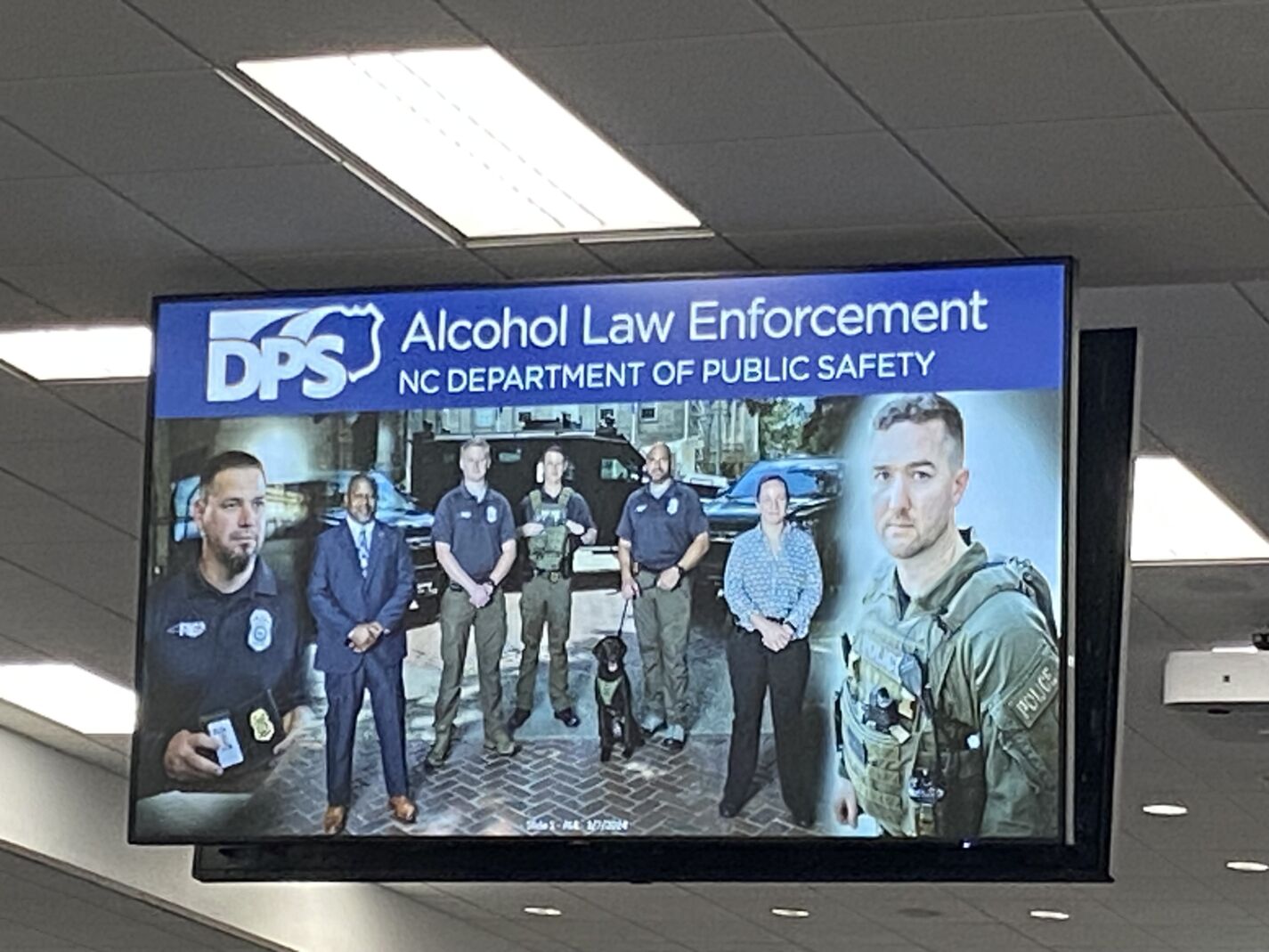Law enforcement agencies are struggling to recruit and retain officers, not only in North Carolina, but nationwide. This was the recurring theme on Thursday, as heads of state law enforcement agencies appeared before the Joint Legislative Oversight Committee on Justice and Public Safety (JPS).
Heads of multiple state agencies explicitly stated that this problem is not exclusive to North Carolina, but is a nationwide struggle.
“One of the big issues right now threatening law enforcement is recruiting and retention is not just a North Carolina problem is a nationwide problem,” said Colonel Freddy Johnson Jr., Commander of the North Carolina State Highway Patrol.
“You all asked for the major challenges that the State Bureau of Investigation anticipates over the next five to 10 years, and I would lead off by saying recruitment and retention of FBI special agents given the intense competition not just in North Carolina, but around the country,” added Bob Schurmeier, director of the State Bureau of Investigation. “I’ve been in law enforcement since 1975, and I’ve never seen anything like what we’re facing now. The challenges are incredible. And we’re competing in a pool […] it’s a very small pool to begin with. I think last year the graduates of Basic Law Enforcement Training numbered about 2000, and so we’re all fishing in the same pond.”

“I’ll end with the prioritization for retention and recruitment of our state law enforcement agents, officers and troopers,” added Bryan House, Director of Alcohol Law Enforcement (ALE). Director House said that it takes about a year to train an ALE agent and “get them up to speed to be able to operate efficiently.
“We’re doing a really good job of training ALE agents to go work with other organizations, and so it would be our hope that we will get some tools to be able to retain those agents.”
One of the biggest obstacles to the recruitment and retention of officers is the pay. Colonel Johnson explicitly stated that they had many recruits who had been accepted to the academy but turned them down because of salary.
Several heads of agencies advocated support for HB 810, citing it as a strategy to address the issue of recruiting and retaining officers.
Eddie Caldwell, executive vice president, and general counsel for the North Carolina Sheriff’s Association, discussed several pieces of legislation that would address the issue of recruitment and retention, including HB 768, which passed unanimously in the House, and its’ companion SB 113, which currently sits in the senate rules committee. Both bills would allow officers to receive retirement benefits and subsequently return to service.
“This goes to our recruitment and retention, particularly the retention issue that you’ve heard about a lot from the state agencies that have already presented,” said Caldwell. “When an officer has served 30 years of creditable service and they’re eligible to retire, if this bill was enacted, for those that wanted to continue to work and their agency wanted them to continue to work because they had earned their 30-year retirement they could file for their retirement, start drawing their retirement benefit and also continue to work and draw the salary. That would apply whether they wanted them to stay in the same position or transfer to a different position in the agency.
“One of the state agency speakers mentioned the fact that when these folks retire, you lose a lot of experience, not only in how to do the job, but also mentoring experience for the next generation of leaders that are coming behind them and this would be a huge incentive to keep folks in the profession if they didn’t lose their retirement benefits when they got eligible.”
A similar bill that would address this issue is HB 810.
“We support HB 810 as the alternative to law enforcement separation allowance,” said Col. Johnson. “I think that’ll be a good thing for retaining some folks that have had several key members and experienced people on the highway patrol that have stayed, especially when you look at all the stuff that we’ve implemented. They had expertise and they stayed to help us do that well beyond when they could have retired and they did that for North Carolina.”
“House Bill 810, the alternate law enforcement special separation allowance, is a benefit now with law enforcement officers who retire and they have the regular retirement through the state retirement system, or the local government retirement system, and they also get funded by their employer an additional special separation allowance that was enacted in the mid 80s,” said Caldwell. “[I]t was designed to bridge the gap between when an officer retires and when they get to 62, which is the earliest age at which they can draw Social Security. In the mid 80s, we had a lot of officers who were ready to retire but couldn’t afford to retire because Social Security doesn’t kick in for a number of years.”
“The challenge is when an officer retires this benefit ends at age 62,” continued Caldwell. “So, if an officer is eligible for this benefit and eligible to retire if they continue to work, they lose some of their years of eligibility for this benefit. As they get closer to 62, that’s one more year that they did not draw this benefit. This bill is designed to extend that cut-off from 62 to however many additional years they would have worked. So, if an officer is, let’s say, 55, and they retire, they can draw this benefit for seven years. If they decided to keep working when they worked and additional three years, then they can draw this benefit until they were 65 years of age,” Caldwell explained.
HB 810 has also passed the House and is currently sitting in the Senate rules committee.